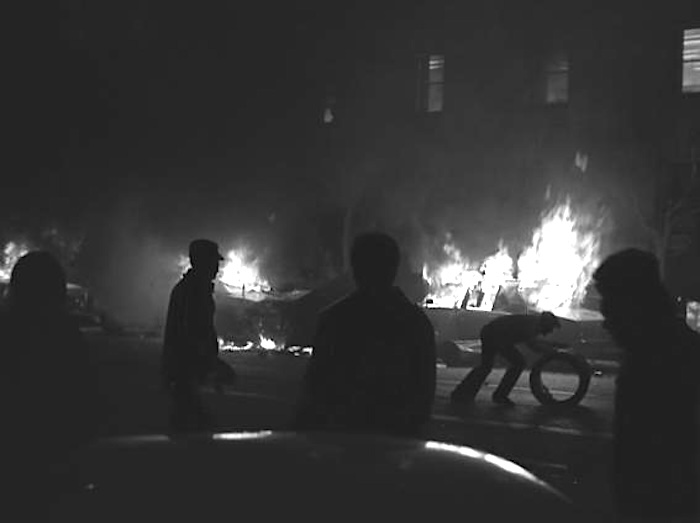Let me just say for the permanent record that the assassinations of Harvey Milk and George Moscone are a bit different than a group of neighborhood activists booing the mayor.
A recent Chronicle oped, by Bernal Heights Yimby Ruth Ferguson, goes to extraordinary lengths to suggest that opposition to the mayor’s new zoning plan is somehow rooted in a culture of political violence in San Francisco. Ferguson notes, in a column titled “In San Francisco, the risk of political violence hits closer to home than we’d care to admit:”
San Francisco’s political identity has been shaped by brutal, ideologically motivated crimes. In 1978, Supervisor Harvey Milk and Mayor George Moscone were gunned down by their own Board of Supervisors colleague. In 1975, a shooter nearly assassinated President Gerald Ford on Powell Street. In 2022, Paul Pelosi, the husband of Speaker emerita Nancy Pelosi, was attacked in his home by a conspiracy theorist wielding a hammer.
She then compares those events to a Lurie zoning rally:
The day after Kirk’s assassination, I attended a rally in support of Mayor Daniel Lurie’s Family Zoning Plan. Opponents of the proposal aggressively encircled participants in an apparent intimidation attempt. The mayor pleaded with the growing mob to engage with civility. Security and police hovered nearby, looking tense, which added to my own anxiety and fear. The rally’s speakers included youth, affordable housing professionals and community leaders who work with low-income seniors. Each of them was aggressively booed. Taunts of “Shame!” and “Go back to where you’re from!” were hurled at them. At one point, the man next to me shouted “Sit down and shut up!” at a Black woman who was sharing her experience of being displaced from San Francisco.
Those events are not equivalent, not remotely.
Remember, San Francisco’s political identity has also been shaped by generations of activists who were who killed nobody, but who created a climate of acceptance by fighting for LGBTQ+ rights, civil rights, free speech, environmental consciousness, and so many other causes. Sometimes, it got a little rough: The Compton’s Cafeteria uprising wasn’t “civil.” Neither was the response to Dan White’s lenient sentence for killing Milk and Moscone.

Threatening or killing someone because of their political beliefs or statements is never OK, and that has happened in San Francisco, including by the Tech Lords. I side with Ferguson in denouncing all threats and violence of that sort.
But there are many types of violence in our society and in our city, and many don’t get recognized, much less denounced or repudiated.
As queer historian Gerard Koskovich notes on Facebook:
The headline is correct, but the story is wrong. San Francisco’s identity has indeed been shaped by political violence: the violence the City itself enacts against vulnerable and marginalized populations, from the police murder of striking port workers in 1934 to the raids on gay and lesbian bars in the 1950s–1960s to the destruction of the I-Hotel in 1977 to the Castro Sweep Police Riot in 1989 to the mass arrests of Rodney King protesters in 1992 to the tacit facilitation of ICE roundups today. And that’s just a few examples.
The wave of evictions that has happened in San Francisco thanks to two tech booms and a lack of tenant protection laws is a form of violence. Sending sheriffs to force families out of their homes is a violent act. Sweeping unhoused people off the streets and stealing their property, including medicine, IDs, and survival gear, is a violent act.
Legislation that allows those acts is, by definition, violence.
Allowing the wealthy to live in privilege while people who are struggling through no fault of their own and sometimes dying on the streets is a violent act.
Many activists argue that Mayor Daniel Lurie’s zoning plan will result in the violence of eviction and displacement of vulnerable communities. Shouting that loudly while the mayor and his allies hold a press conference is a relatively modest response.
The United States is a deeply divided society. So is “liberal” San Francisco. This city is run by people endorsed and supported by a small number of billionaires who have an agenda that is, by definition, violent economic repression of the unhoused, the struggling, the addicted, the working class, the folks who don’t have big salaries and stock options.
Ferguson says we should all get along and be pals and treat political differences as cocktail-party fare. I wish we could. But local politics is not a cocktail party; it’s a struggle for survival for thousands of people who are getting crushed by the billionaire agenda.
You can’t blame them if they show up and shout.







